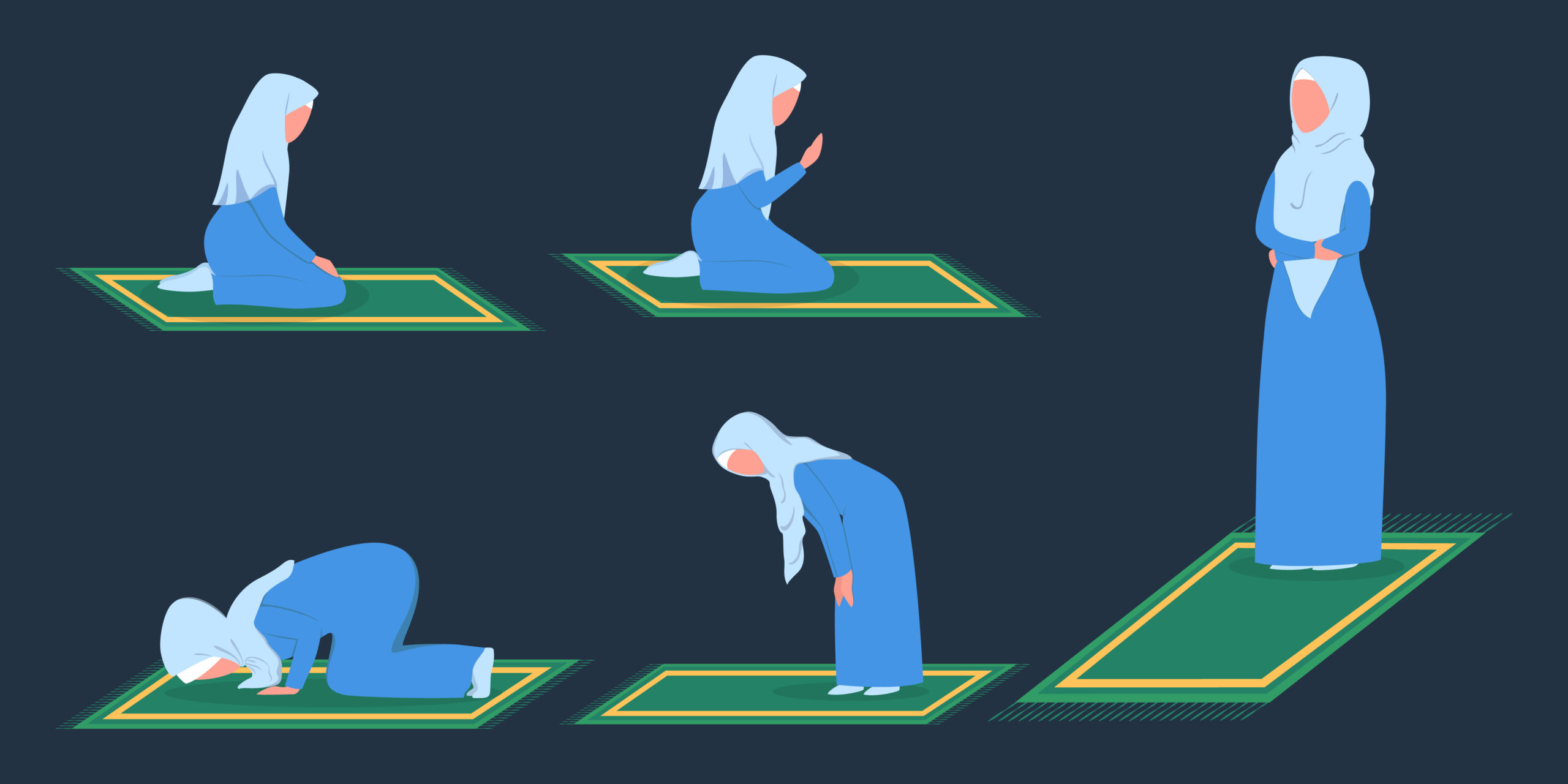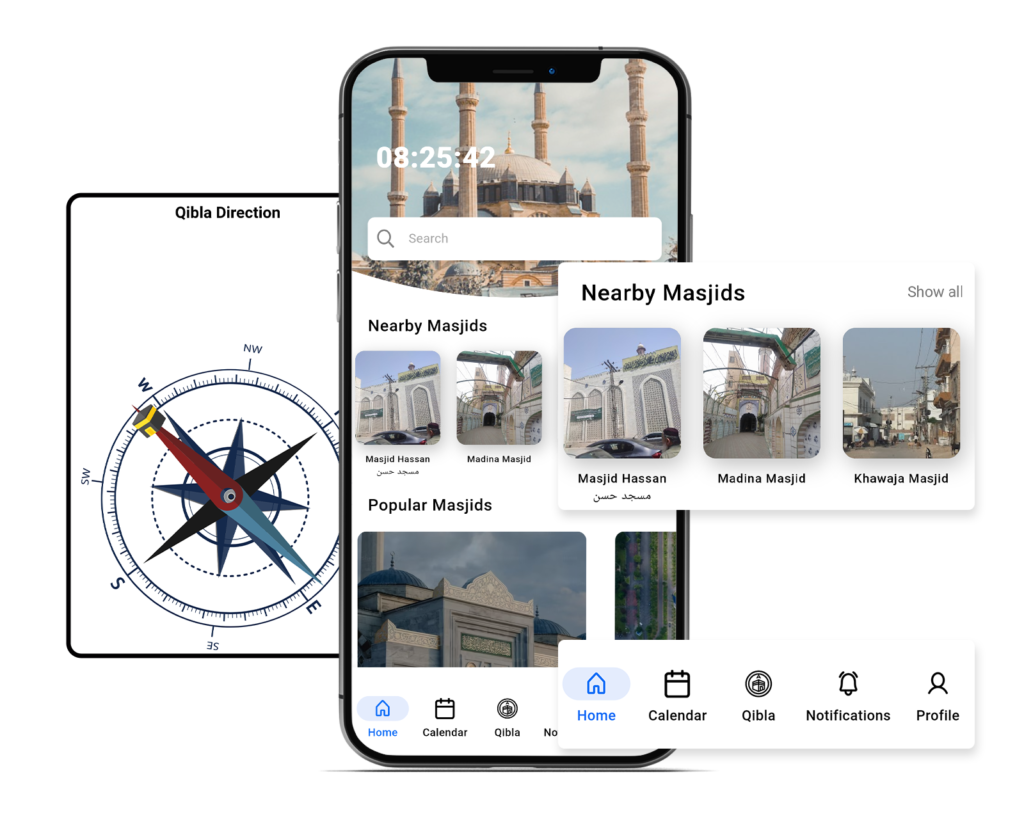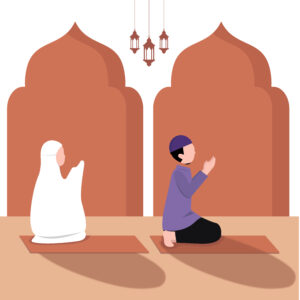
Prayer (Salah) is the cornerstone of Islamic practice and devotion, representing a profound connection between the worshipper and Allah. Salah is not only a fundamental pillar of Islam but also a means of spiritual purification and discipline. This blog delves into the significance of Salah, its spiritual and physical benefits, and how modern tools like the Salah Mate App (www.salahmate.com) can assist Muslims in maintaining and enhancing their practice of faith.
The Importance of Salah
Spiritual Connection
Salah, performed five times a day, serves as a constant reminder of the presence of Allah in a Muslim’s life. It is a direct communication with the Creator, allowing for a personal and intimate connection. The regularity of prayer fosters mindfulness and a sense of accountability, encouraging Muslims to lead lives that align with Islamic principles.
Structure and Discipline
The prescribed times for Salah—Fajr (dawn), Dhuhr (midday), Asr (afternoon), Maghrib (sunset), and Isha (night)—structure a Muslim’s day around moments of reflection and worship. This discipline helps to instill a routine that balances worldly activities with spiritual duties.
Physical Benefits
The physical movements in Salah, such as standing, bowing, and prostrating, contribute to physical fitness. These actions enhance flexibility, improve blood circulation, and promote overall physical well-being. Moreover, the act of washing (Wudu) before prayer ensures cleanliness and hygiene.
Psychological Benefits
Salah offers numerous psychological benefits, including stress relief and emotional stability. The act of focusing on Allah and reciting Quranic verses brings a sense of peace and tranquility. This regular practice of mindfulness and submission helps reduce anxiety and cultivates a positive mental state.
The Ritual of Salah
Preparation: Wudu (Ablution)
Before performing Salah, Muslims must perform Wudu, a ritual cleansing that involves washing the hands, mouth, nose, face, arms, head, and feet. Wudu symbolizes spiritual purification and readiness to stand before Allah.
The Steps of Salah
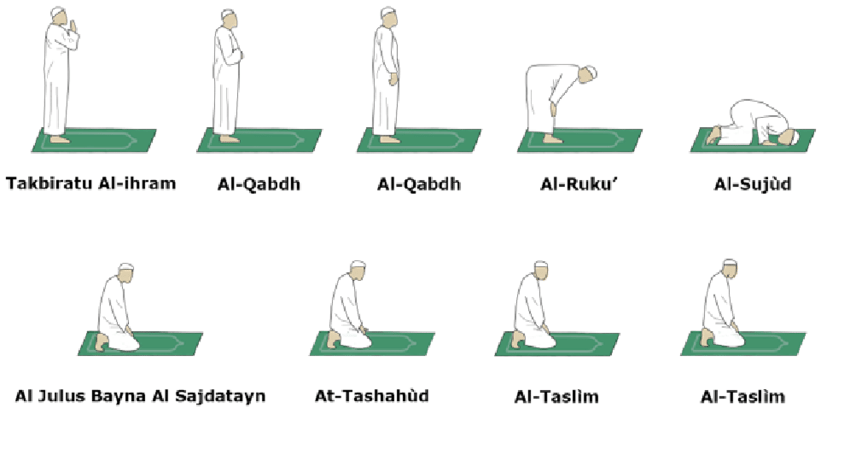
(image courtesy : https://bayanulquran-academy.com/how-to-pray-salah/ : mail us in case of copyright, jazakhallah)
- Niyyah (Intention): The worshipper makes a conscious intention to pray for Allah’s sake.
- Takbir al-Ihram (Opening Takbir): The prayer begins with raising the hands and saying “Allahu Akbar” (Allah is the Greatest).
- Qiyam (Standing): While standing, the worshipper recites Surah Al-Fatiha and another Surah from the Quran.
- Ruku (Bowing): The worshipper bows, placing the hands on the knees and saying “Subhana Rabbiyal Adheem” (Glory to my Lord, the Most Great).
- Sujud (Prostration): The worshipper prostrates, touching the forehead, nose, palms, knees, and toes to the ground, and says “Subhana Rabbiyal A’la” (Glory to my Lord, the Most High).
- Tashahhud (Sitting): While sitting, the worshipper recites specific supplications.
- Tasleem (Salutation): The prayer concludes with turning the head to the right and left, saying “Assalamu Alaikum wa Rahmatullah” (Peace and Mercy of Allah be upon you).
The Spiritual Significance of Each Step
Every step in Salah holds deep spiritual meaning. The intention (Niyyah) signifies a conscious decision to worship, while the opening Takbir marks the transition from the mundane to the sacred. The recitations and postures express humility, submission, and devotion to Allah.
Enhancing Devotion with the Salah Mate App
In today’s fast-paced world, maintaining a consistent and focused prayer routine can be challenging. The Salah Mate App (www.salahmate.com) is designed to assist Muslims in keeping their faith on track by providing various features that enhance the practice of Salah and overall worship.
Key Features of the Salah Mate App
Prayer Times and Qibla Direction: The app provides accurate prayer times based on the user’s location and includes notifications to ensure timely performance of Salah. It also includes a Qibla compass to help users find the direction of Mecca.
Dua and Supplications: Users can access a comprehensive collection of Dua (supplications) for various occasions, enhancing their spiritual practice beyond the five daily prayers.
Islamic Calendar: The app includes an Islamic calendar to keep track of important dates and events, such as Ramadan, Eid, and Hajj, ensuring that users never miss significant religious observances.
Community and Social Features: Salah Mate fosters a sense of community by allowing users to connect with fellow Muslims, share knowledge, and support each other in their spiritual journeys.
Get Salah Mate Now
Download Salah Mate App from Google Play Or Apple Store
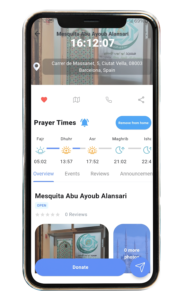
How Salah Mate Enhances Prayer and Worship
Timely Reminders: With its customizable prayer time notifications, Salah Mate ensures that users never miss their Salah. The reminders are a valuable tool for maintaining consistency and punctuality in prayer, even amidst a busy schedule.
Accurate Qibla Direction: Finding the correct direction for prayer can be challenging, especially when traveling. Salah Mate ’s Qibla compass provides accurate direction, making it easier for users to pray correctly no matter where they are.
Enhanced Spiritual Practice: Salah Mate ’s collection of Duas and supplications allows users to incorporate additional prayers into their daily routine. This practice enriches their spiritual lives and fosters a deeper connection with Allah.
Community Support: The app’s social features enable users to connect with others who share their faith, creating a supportive environment for learning and growth. This sense of community is especially beneficial for those who may feel isolated or disconnected from a local Muslim community.
Incorporating Salah into Daily Life
Creating a Prayer-Friendly Environment
To maintain a consistent prayer routine, it’s essential to create an environment conducive to worship. Designate a quiet, clean space for Salah where distractions are minimized. Keeping a prayer mat, a Quran, and other necessary items in this space can help foster a sense of sacredness.
Prioritizing Salah
Making Salah a priority requires conscious effort and planning. Set specific times for prayer and treat them as non-negotiable appointments. Use the Salah Mate App’s notifications to stay on schedule and avoid letting daily tasks interfere with prayer times.
Reflection and Mindfulness
Approach Salah with a mindset of reflection and mindfulness. Focus on the meanings of the words being recited and the significance of each movement. This intentional approach enhances the spiritual experience and strengthens the connection with Allah.
Community Involvement
Participating in congregational prayers at a mosque or Islamic center can enhance the sense of community and provide additional motivation to perform Salah regularly. Engaging with fellow Muslims and sharing the experience of prayer fosters a collective spiritual bond.
The Broader Scope of Worship in Islam
While Salah is a central aspect of worship, Islam encompasses a broader range of devotional practices that contribute to spiritual growth and well-being.
Fasting (Sawm)
Fasting during the month of Ramadan is one of the Five Pillars of Islam. It involves abstaining from food, drink, and other physical needs from dawn until sunset. Fasting fosters self-discipline, empathy for the less fortunate, and a heightened awareness of Allah’s presence.
Charity (Zakat and Sadaqah)
Giving to those in need is a fundamental aspect of Islam. Zakat, the obligatory charity, and Sadaqah, voluntary charity, purify wealth and help support the community. These acts of generosity and compassion strengthen social bonds and promote justice.
Pilgrimage (Hajj)
Performing Hajj, the pilgrimage to Mecca, is a once-in-a-lifetime obligation for those who are physically and financially able. Hajj represents the unity of the Muslim Ummah and provides an opportunity for profound spiritual renewal.
Recitation and Memorization of the Quran
Engaging with the Quran through recitation and memorization is highly encouraged in Islam. The Quran is considered the literal word of Allah, and its recitation brings blessings and guidance. Memorizing the Quran, even in part, enhances one’s spiritual connection and understanding.
Remembrance of Allah (Dhikr)
Dhikr involves the repeated utterance of phrases and prayers glorifying Allah. This practice fosters a continuous awareness of Allah’s presence and promotes inner peace. Dhikr can be performed at any time, making it a versatile and accessible form of worship.
Conclusion
Prayer (Salah) and worship are integral to the Islamic way of life, serving as vital means of connecting with Allah. Salah, performed five times daily, provides structure, discipline, and numerous spiritual and physical benefits. By creating a prayer-friendly environment, prioritizing Salah, and utilizing tools like the Salah Mate App (www.salahmate.com), Muslims can maintain and enhance their practice of faith.
The Salah Mate App offers invaluable support, from prayer time notifications and Qibla direction to a comprehensive collection of Duas and supplications. It fosters a sense of community and provides the knowledge and tools necessary for a fulfilling spiritual journey.
Beyond Salah, other forms of worship such as fasting, charity, pilgrimage, Quranic recitation, and Dhikr contribute to a holistic and enriching spiritual life. By embracing these practices and incorporating them into daily routines, Muslims can cultivate a deeper, more meaningful connection with Allah.

